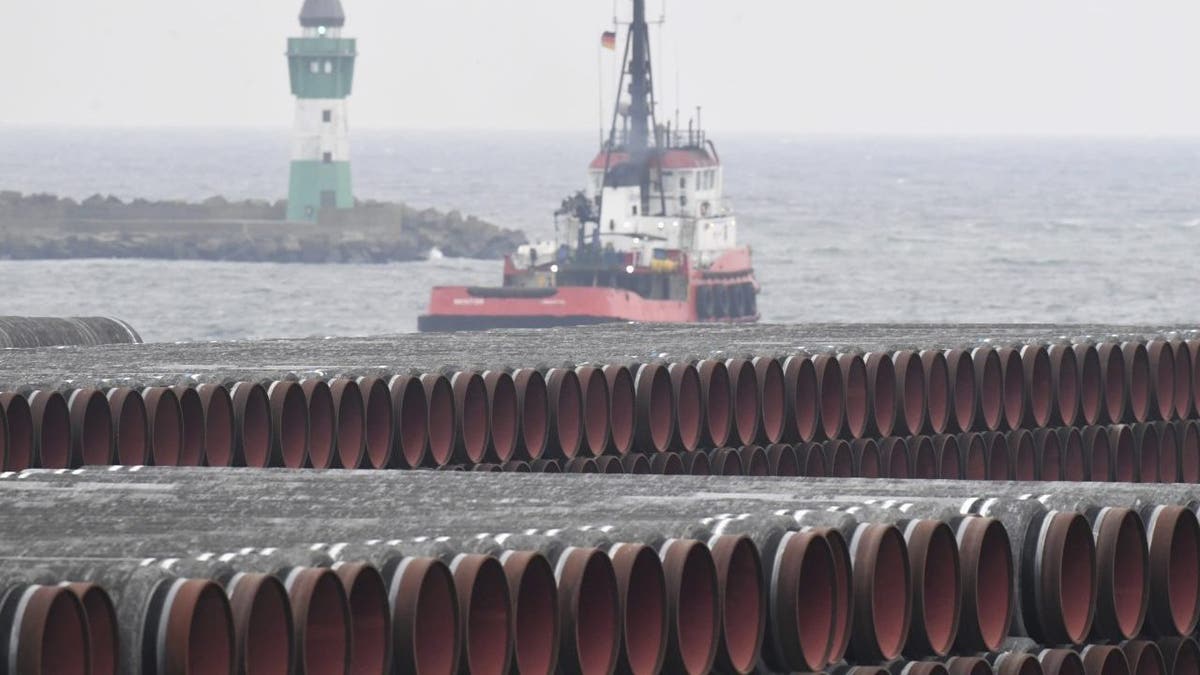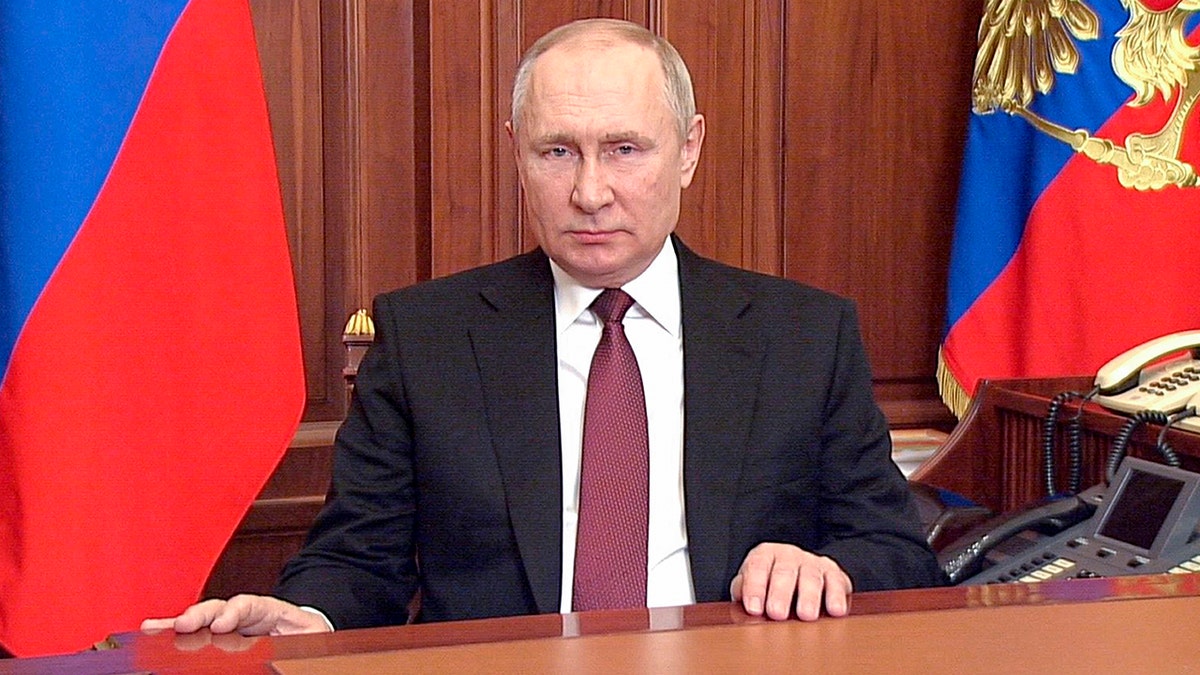Fox News Flash top headlines for March 3
Fox News Flash top headlines are here. Check out what's clicking on Foxnews.com.
The Biden administration on Thursday appeared to split from its party after it said blocking Russian oil imports was not in its "strategic interest" as Moscow pummels Ukrainian cities.
Earlier this week, GOP senators introduced legislation that would bar the U.S. from importing any more Russian oil in response to Russian President Vladimir Putin’s continued assault on Ukraine.
RUSSIA INVADES UKRAINE: LIVE UPDATES

Ukrainian soldiers near a recently collapsed bridge that was the target of a Russian missile near the town of Irpin, Ukraine, March 3, 2022. (Wolfgang Schwan/Anadolu Agency via Getty Images)
On Thursday, West Virginia Democrat Sen. Joe Manchin said he and Alaska Republican Sen. Lisa Murkowski had garnered support on both sides of the aisle for a separate bill that would seek similar Russian oil bans.
"I'm all for that. Ban it," Speaker of the House Nancy Pelosi told reporters Thursday. Though she added that she would not support a move to reopen drilling on federal lands.
The U.S. and its Western allies have bombarded Russia’s economy with a litany of crippling sanctions on the Nord Stream 2 pipeline, Russian banks and businesses and social and government elites, including Putin.
Canada went a step further and announced this weekend it would ban petroleum imports from Moscow in retaliation for Russia’s deadly invasion, a move more easily conceivable in Ottawa as it hasn’t imported crude oil from Russia since 2019.
The U.S. imports the majority of its oil from Canada and Mexico with Russia accounting for just 3% of all U.S. crude oil imports in 2021.
Despite the relatively low amount of petroleum imports, the White House has said no to an oil import ban, citing concerns of increased prices at the pump.

Pipes for the Nord Stream 2 Baltic Sea gas pipeline are stored on the premises of the port of Mukran near Sassnitz, Germany, Dec. 4, 2020. (Stefan Sauer/dpa via AP, File)
PELOSI FAVORS BANNING ALL RUSSIAN OIL IMPORTS INTO THE UNITED STATES
"Our objective and the president’s objective has been to maximize impact on President Putin and Russia while minimizing impact to us and our allies and partners," White House press secretary Jen Psaki told reporters Thursday.
"We don't have a strategic interest in reducing the global supply of energy and that would raise prices at the gas pump for the American people," she added. "And it's as simple as less supply raises prices, and that is certainly a big factor for the president at this moment."
Psaki argued that because barring oil imports may raise prices globally this could have an adverse effect and actually drive more income for Putin.
It is unclear to what extent prices would be affected by blocking Russian oil imports but nations worldwide would need to take a more collective stance to effectively target Putin’s top moneymaker.
Europe imports 40% of its energy needs from Russia, but top European Union officials argue they don’t need to block oil imports to target Putin’s oil revenue.
The EU joined its Western allies in sanctioning Russia, which included banning any shared technologies with Russia on modernizing its refining abilities.

In this image made from video released by the Russian Presidential Press Service, Russian President Vladimir Putin addressees the nation in Moscow Feb. 24, 2022. (Russian Presidential Press Service via AP)
CLICK HERE TO GET THE FOX NEWS APP
"These technologies are built in Europe, they cannot be easily placed globally by other suppliers," European Commissioner for Energy Kadri Simson told a European Parliament committee Thursday.
"So we will see that over time there will be a depletion of revenues from the refined oil that in 2019 generated 24 billion euros of revenues for Russia," she added, noting that it will become harder and more expensive for Russia to refine its oil.






